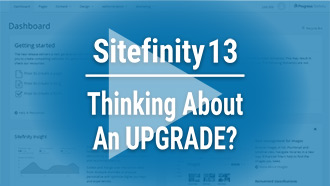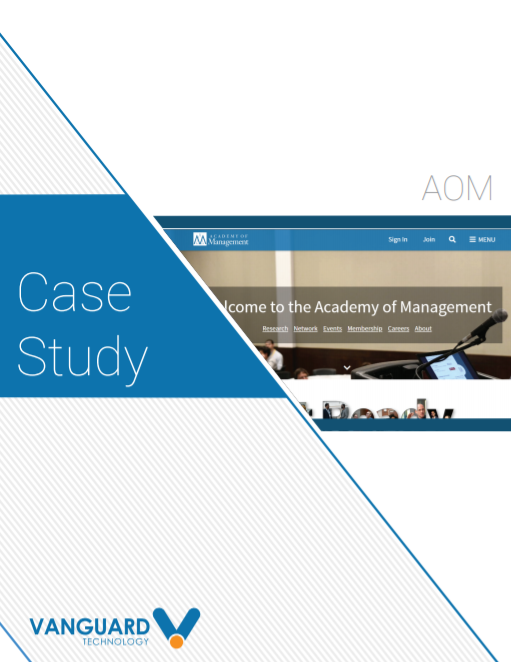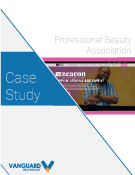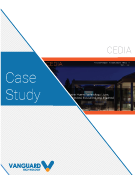Web Smarts - Business Savvy
We’ve been building websites since 1998
We are trusted advisors to Over 50 Active Clients within several industries including associations and nonprofits, healthcare, financial services, retail, B2B and more.

We Are
Trusted
Partners
After we deliver a quality website on time and within your budget, we will be there for when it really counts. We will be proactive, consultative and strategic after we launch your website.

We Are
Integration
Experts
We’ve integrated with virtually every AMS system on the market as well as most LMS, publication, advocacy and career center applications. Our company was founded on custom development.

We build websites that are easy to edit, manage and design using the best content management system on the market, Sitefinity CMS.
We Provide A Full Spectrum Of Services
Our Clients Are Our Partners....
John Wurm

The team at Vanguard helped us think about our digital presence from the perspective and needs of our users, while holding true to the values our organization espouses.
Connect With Us
Improve Your Webcopy

The
Vanguard View
Technology articles about one topic from the perspective of Leadership, Marketing and IT professionals .
Why You Should Know Your Users
What do you envision when you think of a perfect UX/UI (user experience/user interface)? Is the navigation laid out exactly as you expect it to be? Does the search pull up all the results that you were actually looking for?
What if your login and dashboard were already a step ahead of you, bringing you the news you were curious about, already playing the songs you wanted to hear in the morning, and laying out your daily schedule just as you'd want it to be?
It's ironic, but the best UX/UI is one that doesn't exist yet. If you can get your user to what they need, what they want to buy, or what they want to read even before they realize they want it, you don't even need a UI. And the desired UX? It would be instant by simply reading your users' minds.
But we're not there (yet). Sometimes, it seems like we're getting very close with the way the right Google ads pop up after we mention it in a text or even just say it out loud in our connected houses. Or, as another example, your mobile device conveniently suggests opening up Spotify "based on your location."
But what does this mean for our websites and our users? It means that if we want to do everything we can to meet our user’s needs, we really, and not just as a compulsory gesture, need to get to know our users.
Vanguard takes the time to do this during our Discovery Phase prior to a website rebuild. Our team conducts staff and member interviews, crafts personas, creates user journeys, conducts surveys, and draw insights from all of these. In doing so, we are attempting to build empathy and a greater understanding of who exactly is coming to your website. Once we do this, we are then able to craft both an experience and an interface that our users will genuinely enjoy encountering while on your website.
It is during this Discovery Phase that we (but more importantly, you) want to be able to at least answer the following questions:
- What key issues (pain points) do our users run into when interacting with the website? (For example, "I wish the content were done alphabetically or by topic" and "The organization just doesn't feel like a family anymore.")
- How do our users prefer to navigate through our website? (For example, Standard Navigation? Mega-Navigation? Keyword search?)
- What is the look and feel they're hoping to see with the rebuild? (For example, more pictures and "family-friendly” design? Minimal and to-the-point?)
- How do your users prefer to interact with content on the website? (Carousels? Galleries? Lists?)
- What are the most important things they need to accomplish? (Renew? Check credits? Order a book?)
- What are the most important things they want to read up on or engage with? (Blog posts? News? Special content?)
If you can answer some of these questions, you can also likely begin to determine some of what these users are looking for when they land on your website. If you can do this, you can begin to assign roles and personalization to your users through Sitefinity’s personalization features. And if you can do that, you are another step closer to bringing your users just what they are looking for when they arrive.
Maybe we will still fall short of the algorithms, patterns, and machine learning that Apple and Google offer. But if we can at least answer these questions, personalize their content, and start to bring users what they’re looking for – we are at least one step closer to meeting our users where they are, one step closer to better empathizing with them, and that much closer to a hand-crafted user experience. If you have any questions about user experience and interface on your website, reach out to your friendly Vanguard Client Manager.
Vanguard Tips & Tricks
We provide helpful hints you never knew you needed for our clients. Check out "Vanguard Tips & Tricks" to learn quick and simple hacks to make managing your website easier than ever.
Why You Should Know Your Users
What do you envision when you think of a perfect UX/UI (user experience/user interface)? Is the navigation laid out exactly as you expect it to be? Does the search pull up all the results that you were actually looking for?
What if your login and dashboard were already a step ahead of you, bringing you the news you were curious about, already playing the songs you wanted to hear in the morning, and laying out your daily schedule just as you'd want it to be?
It's ironic, but the best UX/UI is one that doesn't exist yet. If you can get your user to what they need, what they want to buy, or what they want to read even before they realize they want it, you don't even need a UI. And the desired UX? It would be instant by simply reading your users' minds.
But we're not there (yet). Sometimes, it seems like we're getting very close with the way the right Google ads pop up after we mention it in a text or even just say it out loud in our connected houses. Or, as another example, your mobile device conveniently suggests opening up Spotify "based on your location."
But what does this mean for our websites and our users? It means that if we want to do everything we can to meet our user’s needs, we really, and not just as a compulsory gesture, need to get to know our users.
Vanguard takes the time to do this during our Discovery Phase prior to a website rebuild. Our team conducts staff and member interviews, crafts personas, creates user journeys, conducts surveys, and draw insights from all of these. In doing so, we are attempting to build empathy and a greater understanding of who exactly is coming to your website. Once we do this, we are then able to craft both an experience and an interface that our users will genuinely enjoy encountering while on your website.
It is during this Discovery Phase that we (but more importantly, you) want to be able to at least answer the following questions:
- What key issues (pain points) do our users run into when interacting with the website? (For example, "I wish the content were done alphabetically or by topic" and "The organization just doesn't feel like a family anymore.")
- How do our users prefer to navigate through our website? (For example, Standard Navigation? Mega-Navigation? Keyword search?)
- What is the look and feel they're hoping to see with the rebuild? (For example, more pictures and "family-friendly” design? Minimal and to-the-point?)
- How do your users prefer to interact with content on the website? (Carousels? Galleries? Lists?)
- What are the most important things they need to accomplish? (Renew? Check credits? Order a book?)
- What are the most important things they want to read up on or engage with? (Blog posts? News? Special content?)
If you can answer some of these questions, you can also likely begin to determine some of what these users are looking for when they land on your website. If you can do this, you can begin to assign roles and personalization to your users through Sitefinity’s personalization features. And if you can do that, you are another step closer to bringing your users just what they are looking for when they arrive.
Maybe we will still fall short of the algorithms, patterns, and machine learning that Apple and Google offer. But if we can at least answer these questions, personalize their content, and start to bring users what they’re looking for – we are at least one step closer to meeting our users where they are, one step closer to better empathizing with them, and that much closer to a hand-crafted user experience. If you have any questions about user experience and interface on your website, reach out to your friendly Vanguard Client Manager.
Case Studies
Vanguard conducts thorough preliminary investigative work to ensure your website is built to cater specifically to your target audience and meet your organization’s goals. Check out some of the case studies on some of our most recent client success stories.
What Can Vanguard Do For You?
As your organization grows and evolves, your website should as well. Whether you are looking to generate more traffic, implement custom functionality, mobile compatibility, integrate your systems, or give your site a complete redesign, Vanguard Technology is your go-to web partner. Reach out to us with your current concerns with your website, and our experts will happily provide a solution.










Leave a commentOrder by
Newest on top Oldest on top